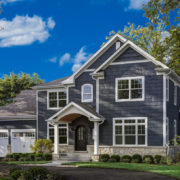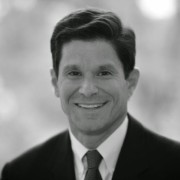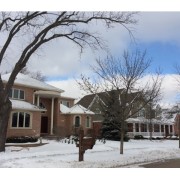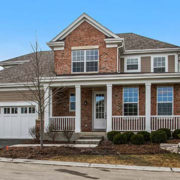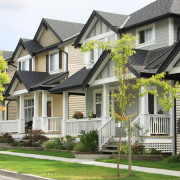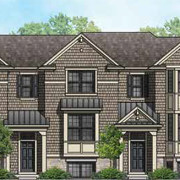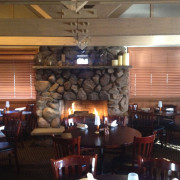By Taylor Johnson as seen in Wilmette-Kenilworth PATCH / Chicago Tribune –Deerfield Community
Chicago developers build luxury ‘spec’ homes in top north suburban locations
If you build it they will come” has never seemed more true than now for a handful of Chicago developers building luxury ‘spec’ homes in top north suburban locations. With luxury home sales in the Chicagoland area continuing to thrive and the North Shore posting some of the lowest inventory for homes over $1.5 million, firms such as Edward R. James Homes, Foxford Communities, Kinzie Group and Meritus Custom Builders, all have various styles of new-construction, custom-designed homes on the market in established, sought-after neighborhoods like Glenview, Lake Bluff, and Winnetka.
“While today’s time-strapped, savvy homebuyers want a home that’s been customized to suit their lifestyle, most don’t want to commit to the long time frame that comes with building a custom home from the ground up,” said Peter Brennan, president of Foxford Communities. “With a custom spec home, we can save buyers months off the home-building cycle, and still deliver the luxury home they envisioned with one-of-a-kind features such as reclaimed wood ceiling beams, intricate tile work and hand-stained wood panels, ensuring no two homes are alike.”
Here is a sample of just some of the luxury spec homes currently available in the north suburbs:
1425 Glenview Road, Glenview – Edward R. James Homes Designed and built by Glenview, Ill.-based Edward R. James homes, one of the North Shore’s oldest and most respected builders, this 4,300-square-foot custom residence features five bedrooms and 4.2 baths, and is nestled on a wooded ½-acre lot in southeast Glenview, just a short walk from downtown Glenview and the Metra. Listed at $1,595,000, this home’s large enclosed rear yard and deck make it a perfect fit for families looking for a lot of space and access to Glenview’s outstanding public and private schools.
The home boasts natural light, large bedrooms, a spacious mudroom with a three-car tandem garage and a finished lower level, to name just some of the elements that cater to an active family. And for the discerning buyer, finishes and design details include first-floor hardwood floors, Viking stainless steel appliances, Brookhaven by Wood-Mode cabinetry, granite countertops, arched openings, a formal dining room and butler’s pantry, and crown moldings.
“Our goal for this home was to combine the charm, elegance and craftsmanship of an older home, with the amenities and proportions that today’s modern family wants,” said Priscilla Schumacher, director of sales and marketing for E. R. James Realty. “We’ve included a large eat-in kitchen, complete with an island, family eating area, and an adjoining place to relax in front of the fireplace. Beyond those goals, we wanted to offer a great location, exceptional schools and a home that provides superior costs of ownership and lower maintenance than competing re-sales. We’re pleased to say, we think we’ve hit all of those objectives and are excited for the fortunate buyer that ends up making this their next home.”
For more information on 1425 Glenview Road, visit erjames.com/1425/
